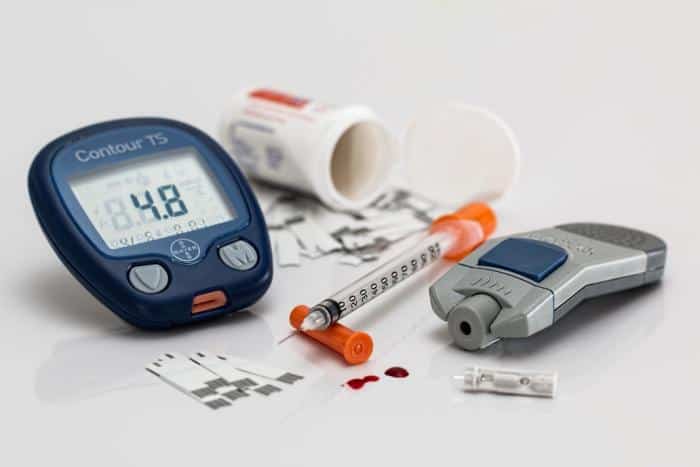Cinnamon is a spice that is a popular addition to many cuisines world over.
It is got from the bark of the Ceylon or Cassia cinnamon plants. Cinnamon has been used in traditional medicine to treat diabetes, loss of appetite, gastrointestinal problems, various skin conditions, etc.
Chromium
Chromium is a mineral that humans require in trace amounts.
It is found in small amounts in certain fruits, vegetables, whole grains, and meats.
Chromium is said to provide important benefits like enhancing the action of insulin – a vital hormone that is critical for metabolism and storage of fats, carbohydrates, and proteins.
Cinnamon vs. Chromium for Blood Sugar
Both cinnamon and chromium have effects on blood sugar. Some studies found that rats fed brewer’s yeast which contains chromium were able to maintain normal blood glucose levels.
In another 1959 study, chromium was found to be the active ingredient in ‘glucose tolerance factor’.
Chromium intake was also found to correct insulin resistance in animals which had low levels of chromium in their blood.
When patients fed intravenously showed signs of diabetes were given chromium, their blood sugar levels improved.
Since them, chromium is added to all IV solutions.
It is possible that as we get older, chromium levels could get depleted from the body.
Supplemental chromium given to such chromium-deficient patients could treat type-2 diabetes and impaired glucose tolerance. Further active research is required.

Studies have also found that cinnamon could improve blood sugar levels.
In one study, 30 women and 30 men with type-2 diabetes were divided into 6 study groups.
Three groups were given 1,3 and 6 g of cinnamon while the other 3 groups were given a placebo.
The study was conducted for 40 days and various parameters were measured.
After 40 days, it was found that the group given cinnamon showed lower levels of fasting serum glucose, LDL and total cholesterol levels and triglyceride levels when compared to the group on the placebo.
This suggests that including 1-6g cinnamon daily in diet could help those with type-2 diabetes.
A review conducted in 2012 concluded that consuming 500mg cinnamon capsules twice daily for 90 days could improve levels lf A1C.
This is an indicator of blood sugar levels in humans. Another study found that cinnamon supplements could increase the action of insulin.
Certain studies found that the polyphenols in cinnamon and chromium had similar effects on controlling blood glucose levels and insulin signaling.
Chromium supplements can improve HbA1C, cholesterol, glucose, and insulin in type-2 diabetes patients according to a double-blind study.
The aqueous cinnamon extracts can improve levels of fasting blood glucose, lean body mass, percentage body mass, and systolic blood pressure.
Cinnamon extracts which contained type A polyphenols also improved glucose tolerance, fasting glucose and insulin sensitivity.
The study was conducted on women with polycystic ovary syndrome with insulin resistance.
Many other studies on the benefits of cinnamon and chromium for blood sugar exist.
In a 2010 study, animals suffering from type-1 diabetes given 30mg / kg body weight had lesser kidney stress and lower blood sugar levels.
This could be due to the ability of cinnamon to work on glucose transporter molecules by increasing their presence in fat and muscle cells and also improving cells energy expenditure.
Cinnamon also contains procyanidin oligomer antioxidant compounds which offer blood sugar regulating benefits.
Laboratory studies showed that animals fed 200mg and 300mg / kg body weight of cinnamon were able to improve their ability to absorb and utilize glucose in the blood.
Further studies on humans are indicated.
Studies also found that different forms of chromium – chromium picolinate and chromium malate can also improve blood glucose levels.
When diabetes medication was combined with 1000mcg chromium picolinate and given to patients with type-2 diabetes for 6 months, the patients demonstrated better insulin sensitivity, less weight gain, and improved lipid levels when compared to those only on a diabetes drug with no chromium supplement.
Chromium malate of 2.85mg – 17mg /kg body weight given to laboratory animals showed stabilized glucose levels in the blood and lower liver glycogen and lipid levels.
It was also found to be safe and there were no side effects indicating the need to study their effects on humans.
